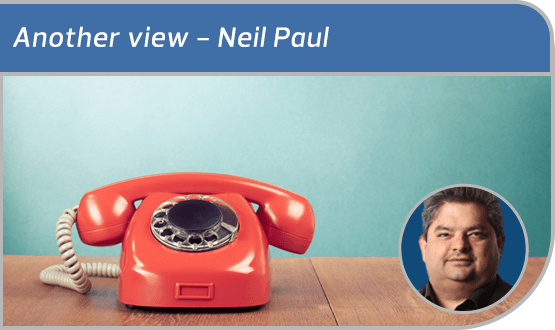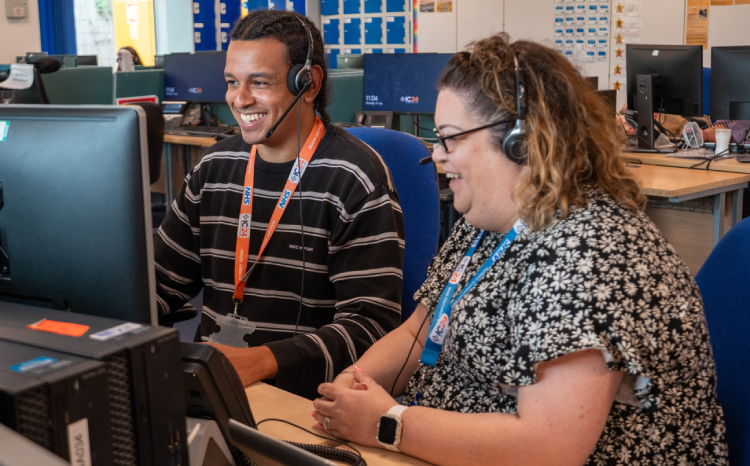Is NHS 111 a waste of time?
- 19 April 2018

Our GP columnist looks at few instances where his acquaintances or patients had to deal with NHS 111 and wonders if the solution lies in ‘playing with data’ to derive interesting insight.
I could ask if the time, money and effort being spent on 111 can be better spent on primary care services? I could ask why do we need 111? Are we that much better off now we have it?
I’m old enough to remember GPs answering their own calls during out of hours and then GP co-ops doing the work; and is 111 really that much better? But I’m not going to, I’m going to ask, do they check if their algorithms make any sense?
There has been a lot of noise recently about A&E waiting times and queues in corridors and I do wonder if it’s 111’s fault in that it is too risk-averse and defaults to sending everyone to A&E. Even though my stories are anecdotal, let’s look at them.
111 or 999?
My son’s driving instructor told us that couple of days ago he and his wife had rung 111 for advice on how much medicine they could give to their child, only to be sent a 999 ambulance, in case it was sepsis.
The A&E people apparently were incredulous, then dismissive and several hours of everyone’s time was wasted on a child with a temperature.
Now I could talk about how it might add value to do a video call so the child could be seen and would this help triage; I could mention it might be cost effective to send some equipment to the house by drone with which basic observations could be measured, but I’ll relate more anecdotes.
One of my partners tells the story of one of his patients: she had rung 111 asking whether there was a pharmacy open to get come cough syrup and a 999 ambulance was sent for her because she mentioned that her chest hurt.
I saw a patient who was sent a 999 ambulance also because she said the words chest pain. In her case she was 21, no family history of cardiac problem and completely healthy. She had seen a GP the day before who thought the symptoms were those of acid reflux and had started her on some medication.
She was a little better but not completely and was ringing for advice on how long to leave it before worrying it wasn’t working. The GP who saw her says he told her give it a few days. Maybe he could have communicated in a better way though we all know people only remember bits of what they are told, but sending an ambulance seems a bit extreme.
What about the patient?
I saw a patient last week who, again, was advised to go to A&E asap. I commented that I didn’t see an A&E sheet on their records and what was the basis for the suggestion? The patient just replied: “Oh I couldn’t be bothered going [to the A&E], I came to see you instead”.
I could go on…no doubt, 111 managers can also point to many examples where GPs have done some mad things, but I wonder do they find out what happens to their patients?
In these days of big data and joined-up data, of the patients told to go to A&E, do they know how many go? How many don’t go? And if they did go, what was the end diagnosis? Similarly of all the 999 ambulances sent – I’ve seen some figures, it costs £450 to send an ambulance – do they know how many of those were worthwhile?
In many cases the experienced paramedics could make a value judgement – however, do they? Is it recorded? Is it fed back? I know that we as a practice get calls from paramedics all the time who can’t see the point of taking people into A&E and want us to take over the care? Do 111 find this out? Do they see the A&E sheets? How many 21-year-olds with non-cardiac chest pain are being sent in needlessly?
I would imagine that 111 is algorithmically driven, and if that’s the case, then what are they doing to improve their algorithms?
Presumably hospitals know their readmission rates? But I wonder do they seek to understand are there systemic issues that, if sorted, might help reduce them? Do they look at it at a clinician level to understand if some are performing better than others? Do I know much about what we do?
Joining-up data
Well actually I’m starting to. I now have a dashboard that tells me who my frequent fliers are, how often they come, who they see, if me who how often do they come back, who do they see next etc.
What I don’t do is link this to other data sources. So every day I get letters from 111 and A&E, and occasionally I’ll raise an eyebrow about people I’ve been seeing who have turned up there, but do we look at them systematically?
Do different doctors have different rates of post-consultation attendance? Are some over-treating? Are some under-treating?
Do we look at those who try to get an appointment and don’t and what happens to them? In theory my phone system should record who is calling – if my local curry house knows it’s me, presumably my phone system could be linked to a household or a person in case of a mobile and that would lead me to NHS number which means I could follow them around the system.
I suspect there are practices out there who think they are offering good access. Perhaps they aren’t bothered that patients wait to get through on the phone, their argument being that eventually they get through and are seen, but do they know the number that give up and go elsewhere?
It’s long been opined that some of the attendees at A&E are there because they can’t get an appointment at their GP. Have they tried? I’ve mentioned before a piece of work we did where we rang the practices of patients in A&E and got them all appointments they hadn’t bothered for whatever reason. Could we look at who attends A&E and look at the phone records of the practice to see if they had called?
For me there are really useful insights to be had from joining-up data. I’m sure some people are working on this but I worry that most of the players are commercial companies trying to sell a product. Are we funding enough people to just play with the data and see what emerges?





6 Comments
“make it a service to be proud of working for not the embarrassment it is sometimes referred to by the media”
I am 100% proud of working for the NHS and have NEVER been embarrassed in my 24 years service. Every knows the media and Politian’s manipulate the facts to whatever spin suits their purpose. Facts are the NHS is the best and cheapest health service in the modern world. The thing we lack on is preventative care (the only area we come close to bottom). IF all the comments on these stories are accurate why is the NHS the envy of the world and constantly tops the charts?!?
Funny that the GPs actually receiving the reports from 111 don’t have a good word to say for them. And allowing direct access to book appointments only increases their dread, because yet more unnecessary face to face time will be used. GPs are very good at triaging their own patients. NHS111 algorithms are not, and GPs resent all such encroachment on their clinical judgment and workload.
Having previously rolled out a 111 service my view on this is that the principles of 111 are spot on. There are some content & technology issues that Sam Shah & his team are working hard to address. The population is growing & aging so we can only go forwards & not backwards. Going forwards involves the joined up thinking that you are discussing with areas such as direct access to in hours GP appointments. There also needs to be a harder push on patient education. Some cultures do not have primary care infrastructures so when moving to this country the approach to healthcare will be quite different. We can not simply assume that everyone will act & think in the same manner. We need to support & coach people through the appropriate route for their healthcare need.
NHS England needs to address one issue. Not cause more barriers to good healthcare. Spend the money on recruiting and training dedicated staff, make it a service to be proud of working for not the embarrassment it is sometimes referred to by the media. We need common sense, focused targeted approach to our NHS problems. Not another deviation from the issue.
We’ve known for years that 111 is worse than useless. In fact, before it started, the evaluation of the pilots said it would increase ambulance usage. So why did it even start? What interests or whose careers were behind it? Are still behind it? We’ve heard GPs like Neil Paul saying it’s useless for years too. It is a national scandal that this is allowed to continue. Tell that to NHS England.
Few views on this.
My experience with 111 is basically to be forwarded to my GP. “No you\your wife\your children aren’t dying but get an urgent appointment” and away we go. The latest, however, did result in the GP saying to get to bloody hospital already with some choice words about how 111 had reacted.
As an external observer of the NHS we know that there are programmes running to do better things with 111 (enhancements to Pathways and the Directory of Services, Clinical Triage Platform etc.) which are the triggers that will, in theory, avoid ambulance call outs and over reliance on A&E. But the data insights questions are what worry’s me.
They are all good questions, ones that should be tested and the answers used if something that can add value. NHS Digital had the vision for the Data Services Platform of building something that could, and would, eventually provide the ability for anyone in the NHS to ask questions and get answers. But what happened to it? There was a lot of publicly visible activity, updates, and planning but now it’s gone. Have NHS Digital decided to shun the market (who can be accused of just trying to sell a product but should also be treated (cautiously) as a source of value) and do it themselves? Will we see another custom built monster on slightly out of date tech that fails to deliver, trumpets and press releases aside? You wonder if moving to Leeds and learning Java/Python/.NET wouldn’t be a decent way to increase your salary…
The thing is, it’s pointless to give people time and money to answer the important questions if they don’t have the right tools. And do we right now have anything more than a crude hammer and pointy stick to work with?
Comments are closed.